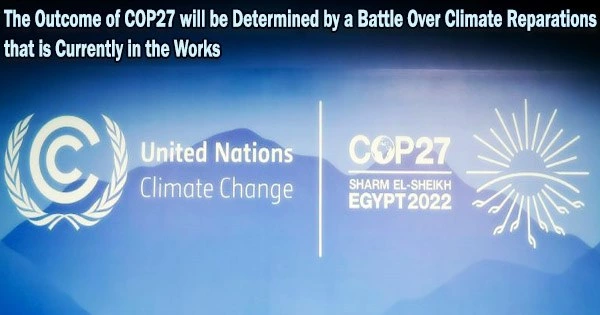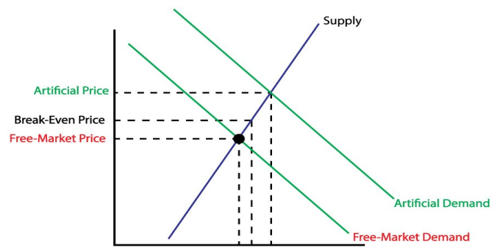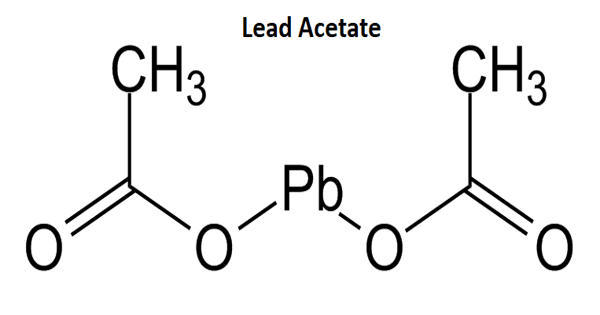The outcome of the U.N.’s premier climate summit will likely rest on the ability of wealthy nations to deliver on reparations, a contentious and sensitive topic that is considered as a key issue of climate justice.
Beginning on November 6, 2022, the COP27 climate summit will be held in Egypt. More than 30,000 delegates will congregate in the Red Sea resort town of Sharm el-Sheikh for the annual meeting of the United Nations Global Change Conference to discuss coordinated action on the climate emergency.
As it becomes more difficult for many people to live healthily on a warming globe, there are increasing calls for wealthy countries to pay climate-vulnerable nations.
Reparations, sometimes known as “loss and damage” payments, are anticipated to take center stage at COP27, with diplomats from more than 130 nations urging the establishment of a specific loss and damage funding mechanism.
They argue agreement on this issue is imperative as climate impacts become more severe.
Rich countries have long opposed the establishment of a fund to address loss and damage, despite producing the majority of historical greenhouse gas emissions. Accepting responsibility might lead to a flood of lawsuits from nations at the forefront of the global problem, which many politicians worry.
Saleemul Huq, director of the Bangladesh-based International Centre for Climate Change and Development, said he is expecting an “agenda fight” at the start of COP27 the result of which he said will be critical to the summit’s integrity.
The U.N. climate conference’s tentative agenda includes funding to remediate loss and damage. At the outset of the summit, however, decision-makers will have to choose whether to add it to the formal agenda.
Huq, a pioneer in loss and damage research and activism, expressed concern that wealthier nations may once again turn down financial aid for low and middle-income nations that are particularly vulnerable to the climate issue.
For instance, high-income countries decided to start a new three-year conversation for finance discussions at COP26 last year in place of a proposal for a loss and damage financing agency. The so-called “Glasgow Dialogue” has been sharply criticized as a program without a clear plan or an intended outcome.
Huq said during a webinar hosted by Carbon Brief that the battle to put loss and damage funding on the official agenda “is going to be the big fight coming up in Sharm el-Sheikh.”
“If we lose the agenda fight then we might as well come home and forget about the rest of COP because it will be useless in the face of what is happening in the world on climate change,” Huq said.
“It is beyond mitigation and adaptation now,” he added. “Loss and damage [funding] is by far the most important issue that needs to be discussed and if the UNFCCC doesn’t do it then it basically becomes redundant.”
‘The litmus test for the success of COP27’
When compared to climate funding for mitigation and adaptation, the demand for loss and damage payments is different.
Mitigation refers to actions taken to lessen the amount of greenhouse gases that are contributing to the warming of the planet, such as switching from fossil fuels to renewable energy sources. While adaptation refers to taking steps to lessen the harm caused by the climate catastrophe in order to prepare for its negative repercussions.
These are two established pillars of climate action. Loss and damage funding, meanwhile, is recognized by many as the third pillar of international climate policy.
Speaking two weeks ahead of COP27, U.S. climate envoy John Kerry said Washington would not be “obstructing” talks on loss and damage in Sharm el-Sheikh. His comments mean that, for the first time ever, the U.S. appears willing to discuss reparations at the U.N. climate conference.
Kerry’s openness to talks on loss and damage funding marked an abrupt change in tone from just one month earlier. Speaking at a New York Times event on Sept. 20, Kerry suggested the U.S. would not be prepared to compensate countries for the loss and damage they’ve suffered as a result of the climate emergency.
“You tell me the government in the world that has trillions of dollars because that’s what it costs,” Kerry said. He added that he refused to feel “guilty” for the climate crisis.
“There’s plenty of time to be arguing, pointing fingers, doing whatever,” Kerry said. “But the money we need right now needs to go to adaptation, it needs to go to building resilience, it needs to go to the technology that is going to save the planet.”
Loss and damage funding proponents contend that it is necessary to take into account climate impacts, such as hurricanes, floods, and wildfires, as well as slow-onset effects like rising sea levels that nations cannot defend against because the risks are unavoidable or the nations lack the resources to do so.
“This is the litmus test for the success of COP27,” said Harjeet Singh, head of global political strategy at Climate Action Network, which includes more than 1,500 civil society groups.
“Looking at loss and damage as a side issue is not acceptable because this is the reality that millions are facing every single day,” Singh said during the same webinar event, citing devastating floods in Pakistan and severe droughts in the Horn of Africa.
Singh said political mobilization over loss and damage funding makes COP27 the most important COP yet. “We now have to make sure it delivers climate justice that we have been demanding by creating a new system of funding so that we can support people who are facing the climate emergency now.”
What is loss and damage?
There is no internationally agreed definition for loss and damage, but it is broadly understood to refer to the economic impacts on livelihoods and property, and non-economic loss and damage, such as the loss of life and losses to biodiversity.
“I think it means different things to different people, but broadly I would see the idea as funding to address the impacts of climate change that can’t be avoided through mitigation and adaptation,” Rachel James, a climate scientist at the University of Bristol, told CNBC via telephone.
“That ties into why it is so important for climate justice because we don’t have a mechanism or funding to deal with that at the moment and it’s too late to ignore it.”
James said that countries from the Global South will be looking for reassurance in Egypt that the $100 billion climate finance pledge by rich nations in 2009 to help low-income nations mitigate and adapt to the climate emergency is going to be met.
“That’s so crucial because that is a matter of trust,” James said. “If we can’t even get the funding for adaptation and mitigation that has already been promised then that calls into the question the ability to raise additional funds.”
So far, only one U.N. member state has pledged to offer loss and damage compensation to the most climate-vulnerable areas. Denmark announced in mid-September that it would support low-income nations with over 100 million Danish crowns ($13.3 million).
Nicola Sturgeon, first minister of Scotland, which is not a member of the U.N., announced at the COP26 summit in Glasgow last year a symbolic £1 million ($1.15 million) loss and damage investment in an effort to encourage other wealthy countries to follow suit.
Why does it matter?
“Loss and damage is happening every single day somewhere in the world and it will continue to happen every single day from now on,” ICCCAD’s Huq said, citing the damage caused by Hurricane Ian in late September as a recent example.
“Ian is the biggest storm Florida has had so far. But that’s not going to be true next year, they are going to have a bigger one next year and they are going to one even bigger than that the year after. So, we have now entered the era of impacts from human-induced climate change causing losses and damages.”
“We need to deal with that and we are not prepared to do it at all. Even the richest country in the world, the U.S., is not prepared for this,” he added.
Paddy McCully, senior analyst at non-governmental organization Reclaim Finance, said that although loss and damage funding was highly likely to feature prominently at COP27, nobody is expecting substantial progress.
“Given the geopolitical situation at the moment and the sharply different positions from the north and south on loss and damage, I think it is going to be hard for countries to achieve a dramatic breakthrough,” McCully told CNBC via telephone.
“The sign of a successful COP will be that there is at least agreement on a mechanism for providing finance in loss and damage,” he said. “And I think that a moderately successful COP would be that it doesn’t all fall apart in north-south acrimony, and you have at least agreement on further talks on setting up a mechanism.”
















